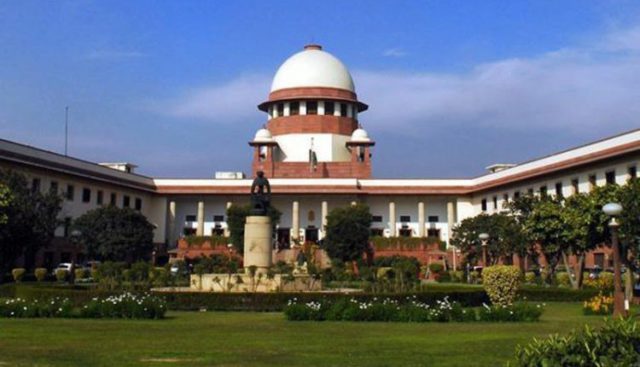New Delhi: The Supreme Court on Friday issued a slew of directions for speedy disposal of cheque bounce cases, which have choked the justice delivery system. The top court also recommended the Centre to amend the law to allow one trial in multiple cheques, if transactions involved are the same.
A bench headed by Chief Justice S.A. Bobde and comprising Justices L. Nageswara Rao, B.R. Gavai, A.S. Bopanna and S.Ravindra Bhat, asked the Centre to make “suitable amendments” in the Negotiable Instruments Act. The top court recommended that trials in cheque bounce cases lodged in 12 months against a person could be clubbed into one case.
The top court directed all the High Courts to issue guidelines for trial courts for speedy disposal of cheque bounce cases. The bench said the evidence in cheque bounce cases can now be tendered by filing affidavits, and there would not be any requirement to physically examine the witnesses.
The bench noted a committee headed by Justice R.C. Chavan, former Bombay High Court judge, will consider the issues not dealt by the court. The top court said the trial courts have no “inherent power” to review or recall the issue of summons in the cheque bounce cases.
The top court directed the High Courts to issue directions to magistrates regarding conversion of summary trial to summons trial.
The top court on March 10, had constituted the committee to submit a report on steps required for speedy disposal of cheque bounce cases. This committee has been tasked to submit the report within three months.
The top court had noted that cheque bounce cases constitute almost 30 per cent of total pendency of case at trial courts and High Courts. The bench added this pendency is causing a logjam at all levels, particularly at trial court and High Court level.
“The Union of India has responded positively to the suggestion of this court for establishment of additional courts for better administration of cases under NI Act … the Solicitor General in principle accepted the need for establishment of such courts, after the modalities are worked out”, said the bench.
The top court in March, last year, had registered a suo motu case to develop a mechanism for expeditious disposal of such cases.
(IANS)




 Ms Kalinga
Ms Kalinga